Words by Séphora Talmud. Photos: Elodie Daguin.
Translated by Millie Wilson.
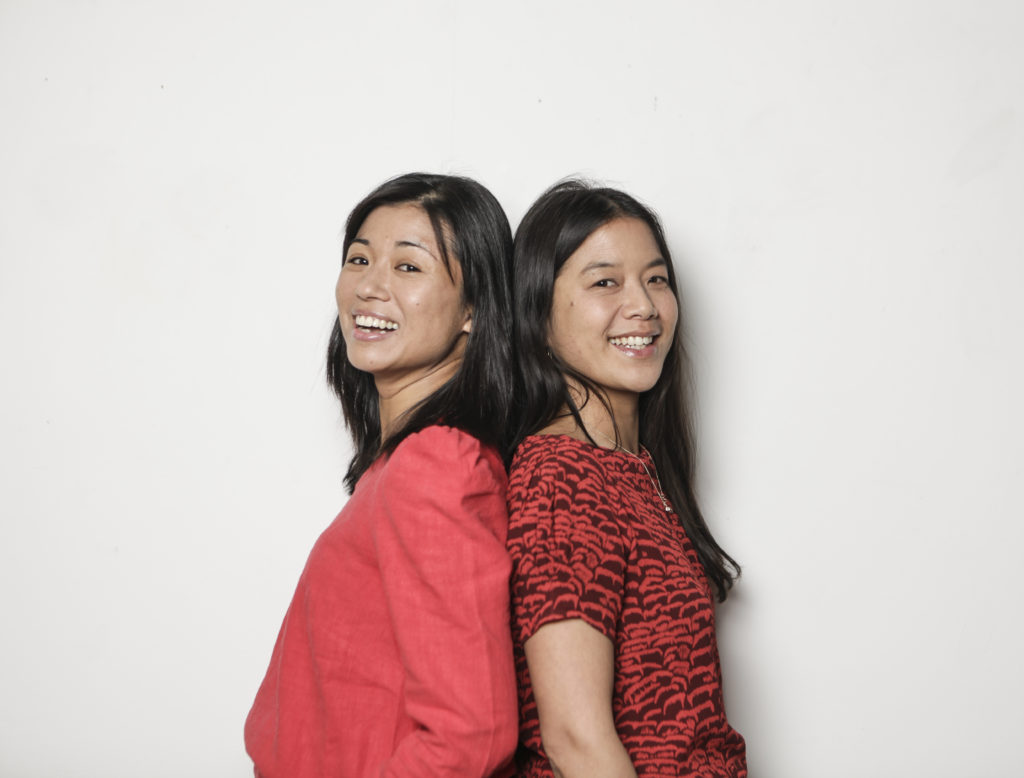
Caroline Dubois and Mai Hua are both more than familiar with notions of “serendipity” and “sisterhood”. The two French creatives, of Vietnamese origin, share a very similar outlook on intimate relationships.
The way they listen to others as well as themselves, these girls are so intellectually honest and graceful in how they live their lives, that we could all take a leaf out of their book when it comes to humility and humanity.
Your favourite colour
Mai: Blue and pink
Caroline: Mustard yellow
A city where you’d like to live
Mai: Somewhere in the countryside!!!!
Caroline: Paris
What do you look for in a man/woman?
Mai: Tenderness / Passion
Caroline: Kindness / Charisma
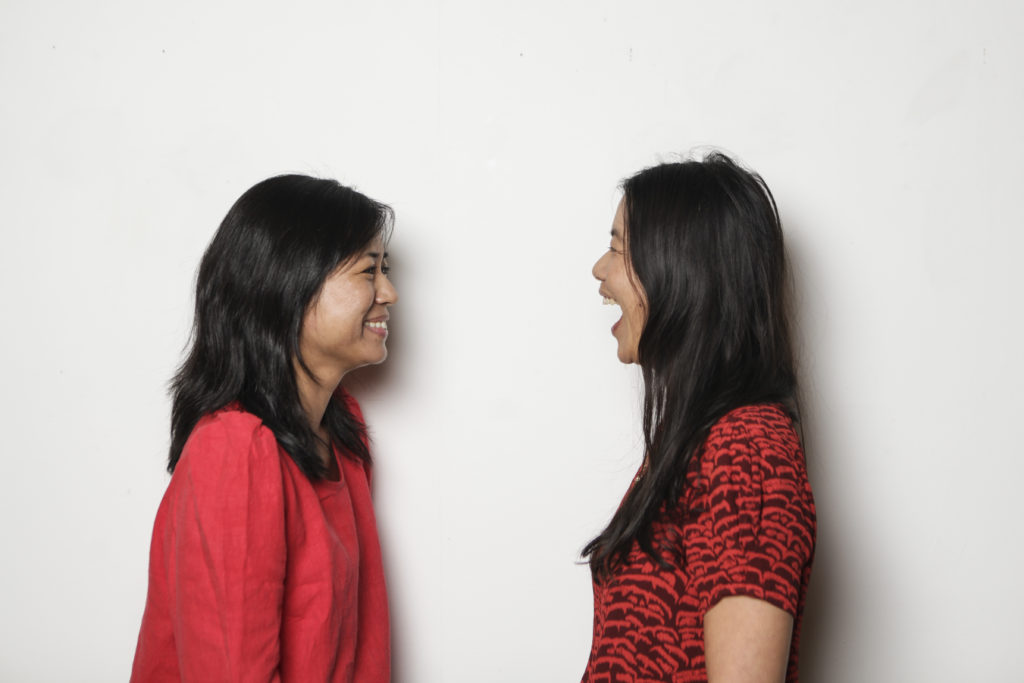
Caroline: How do you find the people that you interview? We feel like you are completely non-stop with this emotional diary. As a reader, I have to be in a certain frame of mind to take it in, I have to take a minute to properly sit down and watch it. It’s heavy stuff. We’re plunged into very raw human, artistic, spiritual stories, that often cover more than one area, even human tragedy. I love your amazing videos on métiers d’art, the people are always so well portrayed, no makeup, naked… I cry every time.
Mai: Ah really? That’s crazy! (laughs) I’m just interested in what stands out. The blog is a space where I have to capture things that catch my attention, in a video, in colour.
Caroline: Do you still do makeup tutorial videos?
Mai: No, I’m not as interested in that. I have changed a lot over the last 3 years, I don’t wear makeup anymore, I don’t need to. It’s not that I have anything against makeup, the colour, the creativity, the posing. I actually love it. It just isn’t part of my routine.
Caroline: So when did your parents come over from Vietnam?
Mai: My mother left at 14 years old, firstly to go to Senegal, then Tunisia, because her father was a diplomat. They couldn’t go back to Vietnam and then they came to Rue de la Colonie, in the 13th arrondissement in Paris. My father came here at the age of 17.
Caroline: That’s funny, my father also went to Tunisia with his legal guardian who worked in French Customs and was often transferred to different places. This meant he was often sent out to French overseas departments and territories. Maybe this is why we went to live in French overseas departments and territories afterwards.
Mai: Oh really? Tell me more.
Caroline: We’ve lived in Polynesia, Morocco, the Reunion Island, outside of the urban, industrial centres. I was always hidden away in the library between 12 and 2 at school and college, I devoured magazines like ELLE and Madame Figaro which, to me, represented Paris. It fascinated me, I had one burning desire in 1997: to go and study in Paris and to explore the capital. I was raised by my Vietnamese grandmother for 6 years, who lived in my parents apartment next to the lake in Créteil, les Choux (in the South East of Paris).
Mai: Haha, Créteil and les Choux, what a place! I was at the far end of the 94 postcode zone, just beyond Boissy Saint Léger. When I was 17, my boyfriend lived in Créteil so we used to go there all the time. Paris was violent, there was no one for me there. Having been to business school, I had been surrounded by a whole bourgeois elite for generations. It’s ingrained in society, everything is done for their gain. However, I never felt excluded. When I started working for L’Oréal, they really liked me because I was the little “creative one” and it didn’t bother them that I came into work in a tracksuit.
Caroline: That’s a real liberty for an organisation known for being restrictive.
Mai: My supervisors didn’t understand. I couldn’t care less, it made me laugh. There was a part of me that knew how to fit in – because as Vietnamese people, as you’ll know, we are the champions when it comes to adaptability, we develop sensors – and then there’s the other side of me that’s disruptive, quite confrontational. People loved that, but I didn’t enjoy the atmosphere. I chose to lead an unconventional lifestyle: I have been working freelance for 15 years now. When I’m asked to introduce myself, I never talk about my profession because that doesn’t define me.
Caroline: I understand. When I introduce myself, I say that my main discipline is words. In 2011-2013 I took the Institut Français de la Mode’s MBA to retrain at the age of 32, because I was in design beforehand. It was a really personal investment at all levels. Every 4 years, I have a sort of cycle, I take myself out of my comfort zone, it keeps me stimulated. My lifestyle changed straight after IFM. It gave me a wake up call and allowed me to take up my original passions again : the creative spheres of fashion and luxury. For 4 years, I ran beautiful image campaigns for Printemps, Printemps Men, Printemps Home, a huge machine, I don’t know how I got through it! (laughs). When you are unaware, you just get on with it.
Mai: (laughing) Yeah definitely, I get it. It’s a learning curve, you know, it’s a journey that you shouldn’t regret.
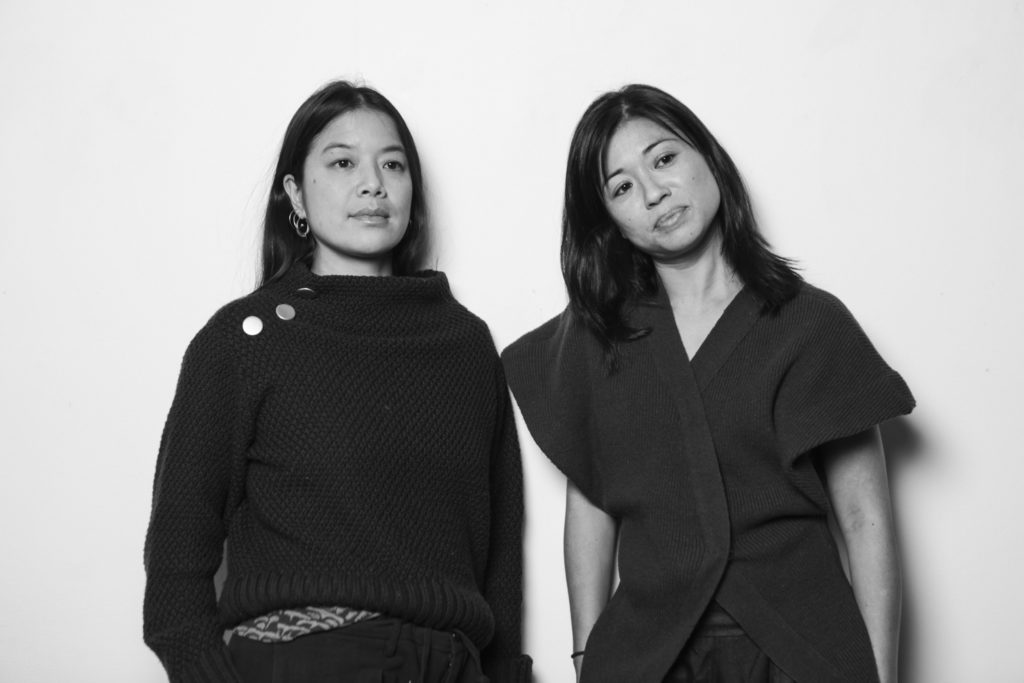
Caroline: Yeah, I left Printemps seamlessly, they helped me out. Now I have the pleasure of sharing what I learnt there in my classes that I run for students at the Istituto Marangoni. I fancied passing on my knowledge, in an international context. Coaching, mentoring, encouraging, accompanying helping young people, I love it. I have been working freelance for a year. I wanted to meet exciting new people, similar minded people, to get connections, work in collaboration with others, never knowing what would come next, that complete unknown…
Mai: Confidence building.
Caroline: Yes. In situations that we don’t come across when working in silo within a company. We are too restricted.
Mai: We are so conditioned, that we don’t even notice that we are conditioned.
Caroline: Towards the end, I felt like I would be going to watch a theatre show, to see a new inhumane comedy every day, in meetings with 6 people struggling, who weren’t listening to what each other had to say. That kind of commonplace violence terrified me. I have the ability to know when to get out when I know that something is no longer for me.
Mai: It’s great that 6th sense, it’s a superpower.
Caroline: The best way to find out is to get out. It allows you to appreciate a lot more what it is that you go on to find afterwards, to have the incredible luxury of being able to choose. I am also a writer, I write to build brand identities, like poems for lookbooks, it’s always linked to creativity, fashion, the art of living. I take a psychological approach, I look deep into the portraits to find the reason what makes that particular brand unique. I also like to use more corporate techniques.
Mai: That’s creativity under constraints. I also like working for brands on their colours, on new perfume or lipstick range compositions. I love to really come to understand the brand, the product, the aims and really get in there and create for them. I used to be in marketing at Lancôme, I was working with Fred Farrugia, the Artistic Director, who would be involved in the production and the vision for the colours, and I had to write storylines according to what he would create. What’s exciting about colour, is that there is a conceptual, mental level to it, within symbolism and semantics. From a sociological standpoint, it’s amazing. If you launch a green and a blue perfume, they don’t work the same, it’s very psychological. And then the other side is the shape, the feel, the physical design. If you just say “blue”, that doesn’t really mean anything at all, because there are thousands of “blues”. So you bring together different colours and identities to find something that resonates.
Caroline: Left brain and right brain. 2 kinds of mentality put together.
Mai: Yes, it’s a lot of work on something that’s very niche. Like you, I try to go a bit deeper in defining a brand’s DNA, because usually the client briefs are like : “I would like to create a women’s perfume, in the next year and a half.” (laughs) To go back to my experience at the huge machine: I was working on some great projects across a global scale, on one of the group’s best brands, with a golden job and salary, the promise of an incredible future according to their standards, but I didn’t feel like I was in the right place. / like it was for me. But there was no point investing in a present for a future that wasn’t going to be right for me. I can see see how you can easily get caught up in it all. Thanks to my mentor, Denis Pérus, I came across the opportunity to take a training course, alongside my work, on colour, applied arts and the fine arts at Arts Décoratifs. I didn’t even think about it, I just went. It was the right timing, I was 27 years old, I didn’t have any kids, and I had a man that supported me.
Caroline: Ah yes, I know Denis Pérus too, he was my professor at IFM! Do you teach there?
Mai: No way! He’s such an incredible man. That time of my life was great. You know you’re lucky when you get to pick up your studies again in the middle of your career. Yes, I do classes and workshops on colour for Management Masters students who are majoring in cosmetics and beauty at IFM. I admire your commitment, I personally find it harder and harder to work out my schedule so I have to do a different style of passing on my knowledge.
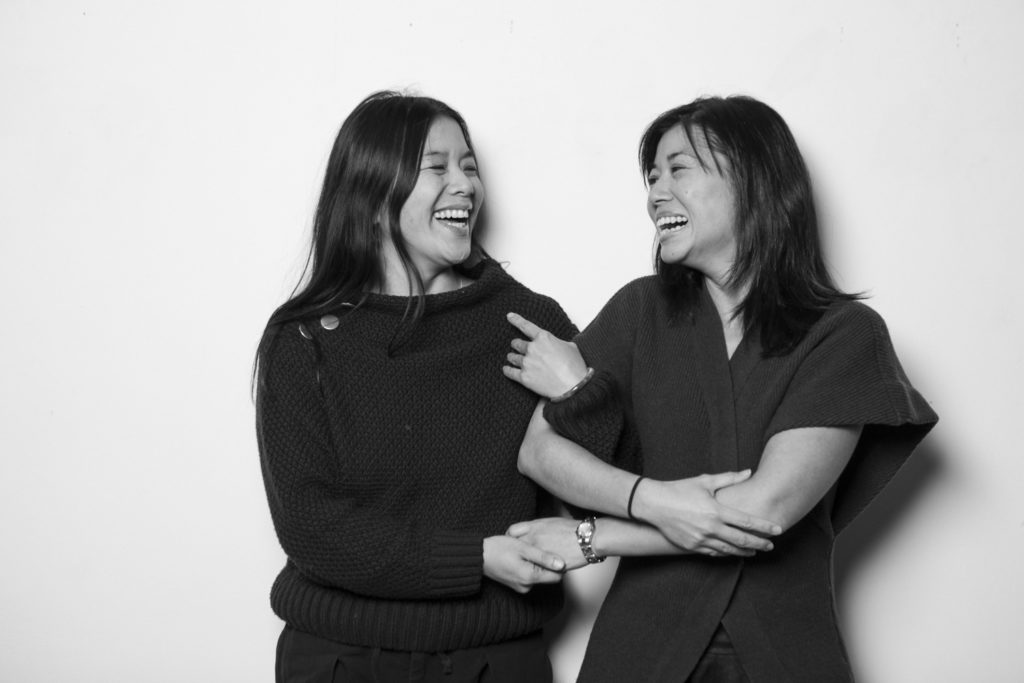
Caroline: Did you always know that you wanted to work in the creative sphere?
Mai: In school, they had once asked us to draw ourselves later in life. I drew myself sat at a desk dressed in a suit. L’Oréal “Girlboss”. (laughs) I always imagined myself in a corporate role. It was my dream. I think that it’s more about the journey. It’s rare for people to have a specific calling. I wanted to go to the Boulle school of fine arts and crafts, but I wouldn’t let myself be creative, I didn’t dare. My family told me “get your qualifications first”, it was an order, but no constraint. I had a mathematical brain, I was very competitive, it made me tick. When I got to the end of something, I would just move onto the next thing, it was no longer my thing. Personality is something that is constantly building and changing. What I am currently doing on the blog is related to my parents, who work in pedagogy and recovery : my father is a teacher, and my mother a doctor, well she’s more than just a doctor, she’s kind of a witch. She has 80 different qualifications, as soon as you enter the room she knows exactly what’s wrong with you. In fact, it’s this great adaptability that has really shaped me as a person. My name means “bamboo flower” in Vietnamese, and my brother’s means “bamboo forest” and my other brother’s is “bamboo warrior”. Bamboo siblings. (laughs).
Caroline: The adaptable shoot, you can use it for anything.
Mai: Exactly. It can bend but it never breaks. It’s in our roots. Vietnamese families are very attached to the idea of “excellence” that can sometimes deny individuality. It’s really alienating. I like the person that I am today and it’s undeniably because I have been through the right steps, taking one thing at a time.
Caroline: My father used to teach English to future teachers. When we lived in Tahiti, we had a maid who was much less fortunate, one of her daughters was staying with her grandparents in the Marquesas Islands, which was really far away from the main island of Tahiti. When she finally brought her over, she had no choice but to bring her with her to work at the weekends. My sister and I taught her to read, write and count with our old school books. It was natural. The notion of helping was always important to me, as well as a deep feeling of restoring justice. I had an Asian education, it was very strict, I never had a choice. I always adapted well like the good soldier I was. Then I went on to chose arts, literature, reading, writing, imagination, languages… My brother is the model child; he became a telecommunications engineer. (laughs) I am quite close with my father who writes a lot of poetry.
Mai: Ah that’s really cool, so despite being strict he’s quite a sensitive, creative person.
Caroline: Yes. He’s also really spiritual. He wrote his dissertation on Buddhism with reference to an Edgar Poe tale, that draws on Trinh Xuân Thuân’s notions of astrophysics. Anyway, back to you : There was a turning point 3 years ago with the blog’s name change, wasn’t it taken from a mix of your name and meeting Jerry?
Mai: Yes, it was a huge spiritual turning point. Hence my baseline “the emotional diary”.
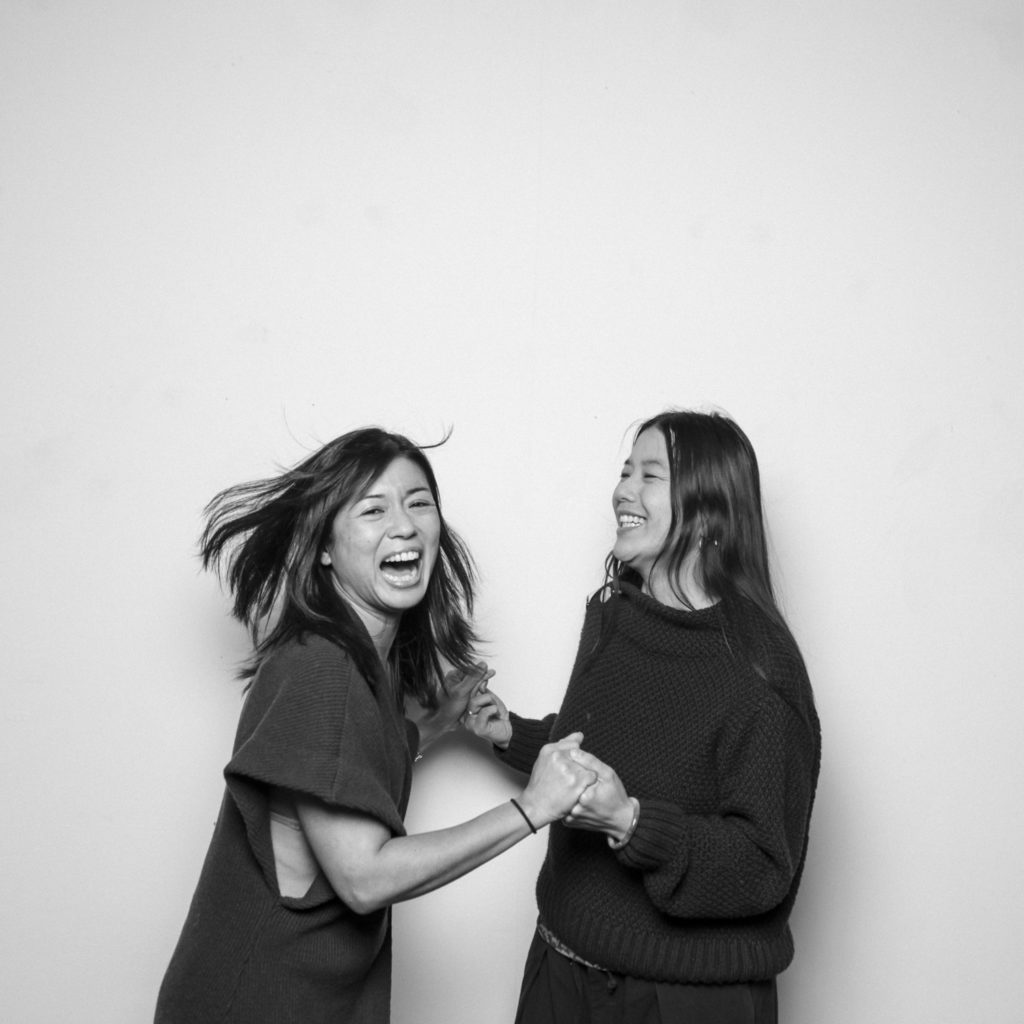
Caroline: It’s like your relationship with Jerry had revealed, given a sort of sense to and confirmed what you were working towards.
Mai: Meeting him was a complete revolution. He’s the person that completed me. That filled my glass so to speak. The glass was already there but it was empty. I was a shell, that’s all. Your whole perception changes. Jerry allowed me to safely go off and explore some very dark and difficult things. I always have someone there to catch me and who is there for me. It’s a rare gift.
Caroline: How did it come about?
Mai: When I met him, I had already started a form of therapy, I had started my film on generational transmission. At that point I had no idea that it was going to be so heavy. My brother in Vietnam received an invitation to a Jerry Hyde conference, an English therapist, who practices psychology with magic. He sent me the leaflet saying “you’re single at the moment, open your horizons, go and meet people who have similar interests to you.” At the time I was looking for a man around 30 with whom I could move to the suburbs and start a family. Not very ambitious (laughs). And it’s at that conference where he was presenting his book Play From Your Fucking Heart, that I see Jerry for the first time. The guy didn’t seem like anyone else I knew. He has a way of seeing things, that I never saw before. So I go to meet him at the end to thank him, and on my way home I think to myself that I should film him for the blog, which, at the time, wasn’t about personal development. He replied to my message on the Eurostar. We get in 2 Skype calls, which are a flop. I never prepare my interviews. I don’t like to try to force anything. If it doesn’t happen, that’s just the way it is. I’m sure that life will give us another opportunity, I know that he’s in London, he knows that I’m in Paris, and we’ll keep in touch for a bit. Two weeks later, I pick up a job for The Body Shop in London, a medium-term project with 5 meetings in London. It’s mad because I never work abroad, and my jobs are usually short-term. So I send him a message and a date is fixed to film at his.
Caroline: His house is like a den, properly lived in and personalised, almost like a movie set. It has loads of little details, like lots of symbols, wall hangings, glowing twilight colours. It’s mystical, there are some really beautiful quotes on the walls…
Mai: Exactly! I’m like “what is this?” You arrive to a doormat saying “fuck off”, okay… (laughs) There are human skulls and items that came from his grandparents. So I’m annoyed because my microphone isn’t working, I later realised it was on mute… I was nervous, I liked the guy, he’s quite impressive.
Caroline: Yeah, he’s definitely got something about him, he’s charismatic.
Mai: So I’m filming him, from far away, close up, using the microphone on the camera. It took me 9 months to edit the video because the sound was obviously awful. Anyway, we talk about everything, this was all new to me: we can see life that way. The interview comes to an end and he suggests that we go and see some of the sights next time I’m back in London. So when I went back in January, when he’s starting to write his novel, The Book of Sin, we’re chatting again and then we start keeping constant contact. And I fell in love just like that, in 6 months. We made a connection because I wasn’t trying to flirt at all, I was just being myself. I can see a whole transformation in myself since I met him, and it’s the same for him, it’s fascinating.
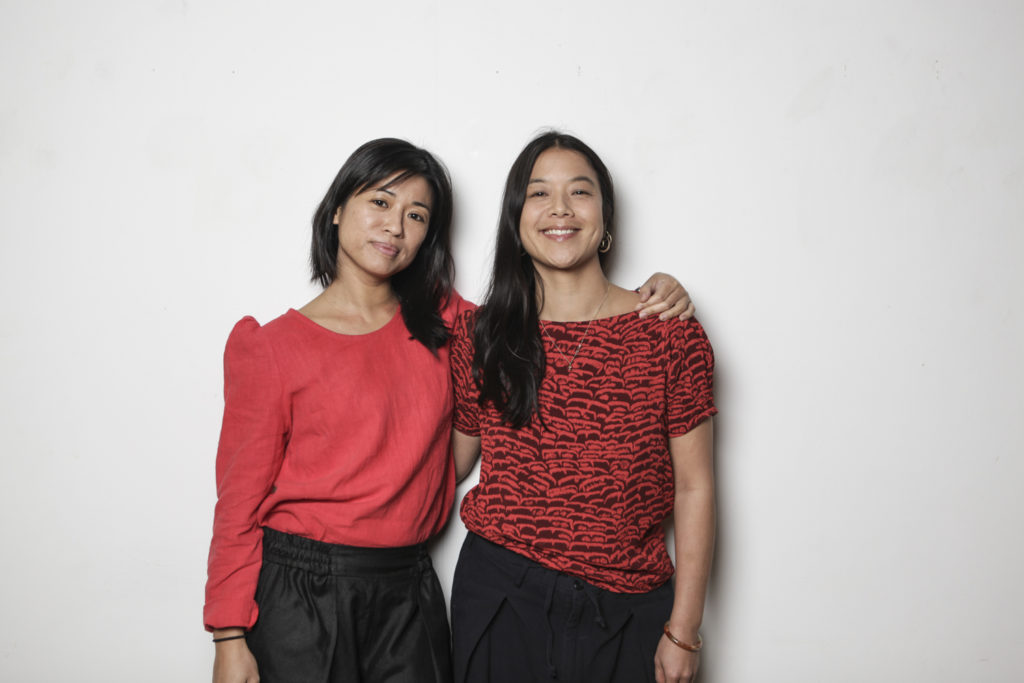
Caroline: There’s an incredible resonance in it for both of you, both spiritually and intellectually, as if it brought out a part of you that was waiting to be found. You can really see it, even in the physical transformation. This return to your natural hair, no makeup. It reminds me a bit of me and my partner, there’s 10 years between us, we met 10 years ago when I was 30 and he was 40. It’s another big love story, and I don’t want to take away from yours. It’s a pure love story, which has no end but itself. The age difference is so interesting though, especially at a certain age. We’ve had to think things through a lot more in a relationship with such alterity. We change.
Mai: Yeah, I know what you mean, there’s 13 years between myself and Jerry. When you are 20 years old or 30 years old, it doesn’t feel the same.
Caroline: Also, adults are almost fully matured, in their energy, and we’re not quite as accomplished, especially not in those areas. How do you deal with the distance?
Mai: For nearly 2 years, Jerry was the icing on the cake. But now he is the whole cake. (laughs) I love my incredibly rich life in Paris, my 2 kids, my friends. But it’s draining, because you are constantly having to reconnect with that person and then detach from them otherwise it’s too painful when we have to be apart. We have an incredibly strong and intense relationship, and that’s also partly due to the distance, and the precious excitement we get whenever we are together again. We have different daily lives. His 14 and 16 year old daughters and his work are all in London. I have more freedom in terms of my work but my 10 and 13 year old kids are in Paris. We know that we still have huge parts of our lives in our respective cities for the time being.
Caroline: We follow your children’s birthdays on the videos, we see them grow up. They are so cute. There’s an amazing video where you are talking about learning values with your daughter, about what kind of person she will become, how you will always try to be there for her. It’s so precious to have a parent who will document, and leave her all of this history and learning in videos. Do your kids realise this?
Mai: I don’t think so, because I’m their mum, so for them I’m just someone that films, edits and leaves a mark. It’s part of their life and their story. Motherhood has been the most powerful experience of my life. It’s really troubling, it throws you in at the deep end. There is a huge psychological unconscious that you had never imagined. It’s the same for most of us, but you’re in a head-on conflict between the child that you once were and the parent that you are becoming. Going over the relationship that you have with your childhood can be really painful. I immediately broke down. I had really bad anxiety. My second child taught me something that I never really understood before : the idea of otherness. It’s like another person, who comes from within you, but who is totally different. It pushed me back inside of myself. There’s nothing harder than raising a child, but there is also nothing more beautiful. It’s crazy.
Caroline: I don’t have any children but I’m a very present aunt. I relive my childhood with my little nieces and nephews who are 4 and 7. I think about them every day. I have to be with them every 2 weeks. If I don’t see them, I don’t feel good, physically. I need to see them grow up, find out the silly stories from the week, it plunges me into a state of bliss, letting go, sheer joy. Hassle-free, that suits me! (laughs) With my daughter-in-law, I don’t feel like a mother-in-law ; I’m the middle ground parent between the two generations. I’m looking after little adults in the making, who are now more or less responsible. Our relationships are more relaxed.
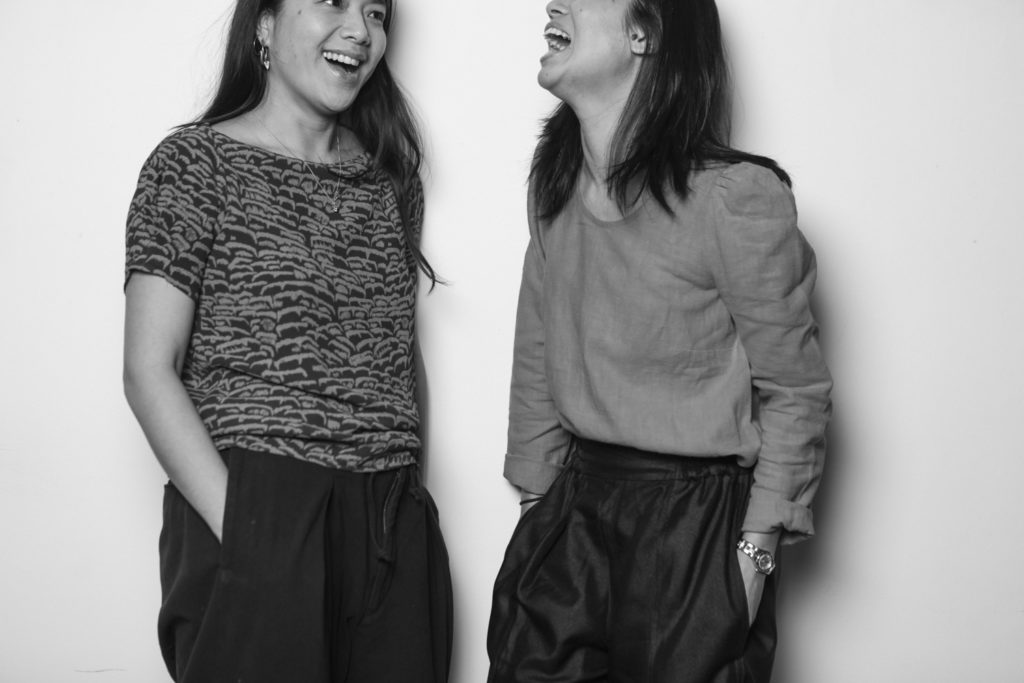
Mai: At the moment I am looking into womanhood: where are women? What is a woman? I think that I have always been a woman, it’s just that this connection with womanhood has been broken and rebuilt several times. I grew up with lots of brothers and around my dad more so than my mum. I found my way first as a human being, then as a mother, a daughter and a granddaughter. When I manage to reconnect with it, it makes me feel very powerful. It often passes through my body and through exploring my cycles at both a chemical and biological level. We realise that, throughout our cycles, women experience different emotions and ways of thinking. Our lives are not as linear as those society imposes on us. I need to concentrate on the flow. If I get too caught up doing things, I lose my energy.
Caroline: It’s so complex. Sometimes I can go through some really emotional phases, I’m like a sponge. My blows of fatigue are intense, it really drains me of energy. How do you define reconnecting with with your womanhood now?
Mai: The little girl needed to grow into a woman, to stop being perfect, and wanting to please everyone, being good, always doing the right thing. I remember Jerry telling me once when we were first together “I have no powerful women in my life.” That really hurt me. “You never get angry, where is your anger?” That stirred something in me, because he had allowed it to. The first time I got angry with him was after 6 months, I went bright red, my nose was running, my hair was all over the place, I went mad. (laughs)
Caroline: You never let yourself get like that before, is that because of your upbringing?
Mai: Yes. I could never get angry, it was strictly not allowed.
Caroline: So it was locked away. Meanwhile, we often think that being calm and passive is a vertu, a sort of wisdom.
Mai: I think there’s a difference. You can’t have inner peace or wisdom if you have never explored your anger, your darker sides, to balance things out. It doesn’t mean that you have to be nasty, selfish or piss everyone off all the time. Not at all. It means that when that emotion arises, you have the self-respect and courage to dare to say “Ok, now I’m annoyed, so it’s probably going to make me say things that I don’t mean, but it’s out of love that I’m telling you that I disagree. So this is how I’m feeling and I would like to change that.” That’s where you start to build intimacy. You let yourself fill up the glass of the relationship, even if it means it overflowing, rather than just settling with it half full or half empty just for the sake of a smooth ride. When I started to explore this, I uncovered a powerful part of myself that was buried within. This doesn’t mean that I am any more of a woman when I am angry. It just means that I’m more self-aware, in touch with my body and my sexuality at this point in my adult life. Depending on the situation, a side of me is able to freely express itself in an more effective way. What happens when I stop wanting? What emerges then? You have a developing intuitive power. It takes some work.
Caroline: What are your projects for the coming year?
Mai: To finish my film. And I’m going to work with the Fondation d’entreprise Hermès, filming craftspeople in schools for their Manufacto project, set up 3 years ago. They send artisan craftspeople into around 40 classes all over France for an hour and a half every week, over a 12 week period and they teach children how to make something. I follow a woman who is going to make a toolbox for secondary school students to raise their awareness. It’s a new approach to learning, both for the students and the teachers that work alongside them because it uses a different methodology based on collaboration. To consider the relation to objects, work and time in another way.
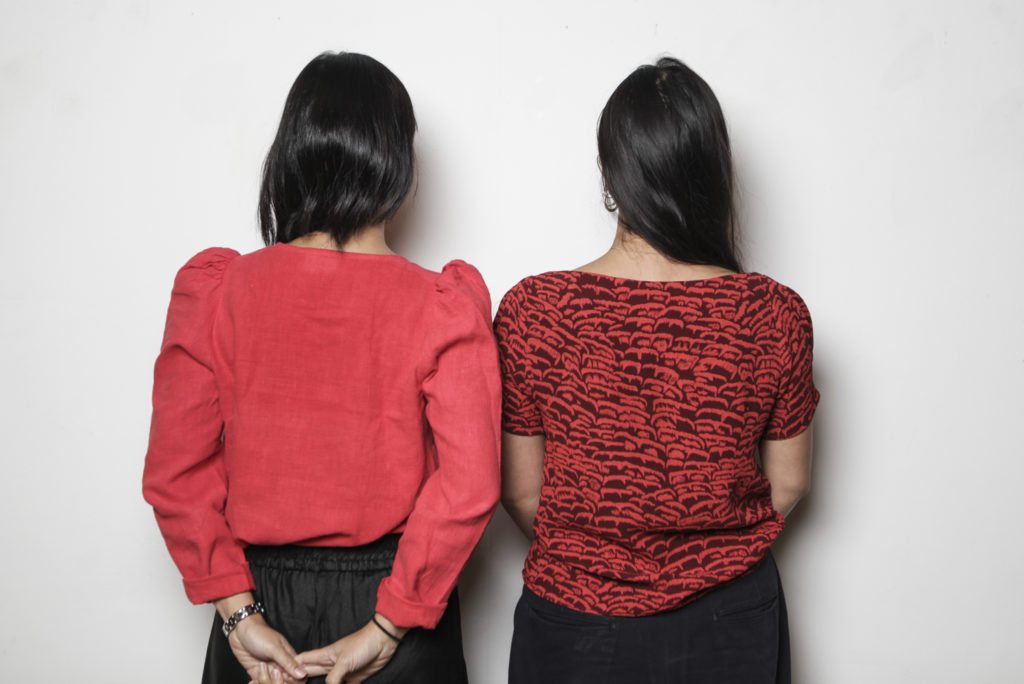
++ Follow Mai Hua on Instagram, Youtube and Facebook.
++ Follow Caroline Dubois on LinkedIn.
Words by Séphora Talmud // Photos: Élodie Daguin.
Translated by Millie Wilson. Thanks to Luna Gilles for the make-up.
